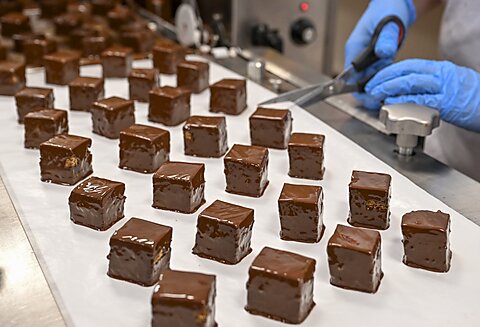A recent Bloomberg story notes that Americans are facing higher prices for sweets and other goodies during the holiday season amidst rising pressure on sugar supplies. While part of this is due to droughts in sugar‐producing regions of the United States and Mexico, the article notes that prices are also being driven higher by protectionist sugar policies. Inflated sugar prices aren’t an unfortunate byproduct of these laws—it’s their entire point.
Although inflation is a problem the world over, the US sugar market has been uniquely impacted due to its protectionist regulations. US rules cap both domestic sales and the volume of foreign supplies that can be brought in under low duties; all other sugar imports past those so‐called tariff‐rate quotas are subject to higher taxes. The regulations are intended to protect grower profits, especially given higher US production costs, and prevent other countries from flooding the US with sugar.
These constraints on both imports and domestic production have resulted in Americans paying nearly twice the international price of sugar. And sometimes that gap is even wider:
Despite these costs, candy makers are importing sugar at the sharply higher above‐quota tariff rate to ensure sufficient supplies. Consumers, these firms say, will simply have to bear the added costs:
“We just found that it was better to just pay more for sugar and pass it along to the consumer than to be completely out of sugar,” said Kirk Vashaw, chief executive officer of Dum Dums lollipop maker Spangler Candy Co. “And there’s a lot of other companies that I think thought the same thing.”
But sugar protectionism’s harm goes beyond just paying more for lollipops. Factory closures and job losses are also possibilities should confectioners shift production abroad to escape US sugar protectionism:
If the sugar problems continue much longer, more companies might look to offshore output. It has happened before. In 2019, Spangler moved production for Sweethearts, the popular heart‐shaped Valentine’s Day candy, and Necco candy wafers from Boston to Mexico after the brands’ former owner went out of business. Half of Spangler’s candy cane production was already south of the border at the time. Better automation in the US offsets the higher prices of sugar, so production costs for candy canes are similar in both countries, Vashaw said.
Atkinson Candy Co., the 91‐year‐old company behind Mary Jane peanut‐butter caramels, already moved production of its “Mint Twist” Christmas candies to Guatemala in 2010. Third‐generation candy‐maker Eric Atkinson said he has considered moving more hard candy output away from Texas if conditions don’t improve, though he hasn’t made any concrete plans.
These are not isolated examples. In recent decades numerous companies have packed up for Mexico and even Canada to obtain this critical ingredient at competitive prices. As the president of one such firm said, “I just got tired of paying welfare to Big Sugar.”
At least these firms have options. Other businesses such as smaller bakeries or neighborhood pastry shops have little choice but to pay the higher costs—all so politically–connected sugar producers can pad their bottom line.
This sugar scam rarely attracts attention in Washington outside of farm bill reauthorizations every five years or so. The current farm bill expired this year, which means that agriculture issues could find themselves on the congressional agenda in 2024. Revisiting this protectionist nonsense should be part of the discussion.













